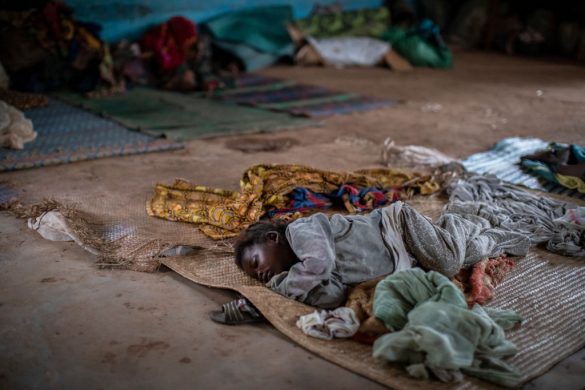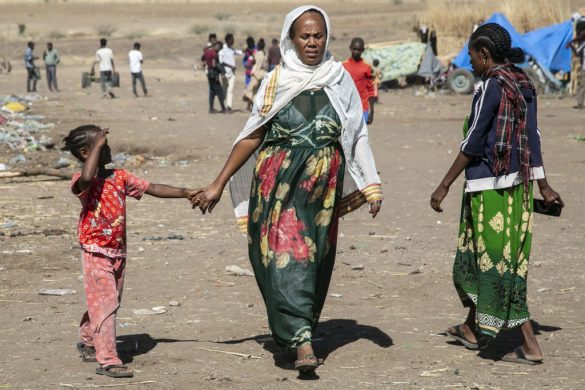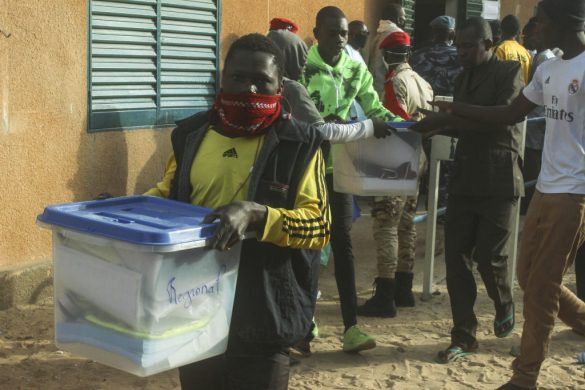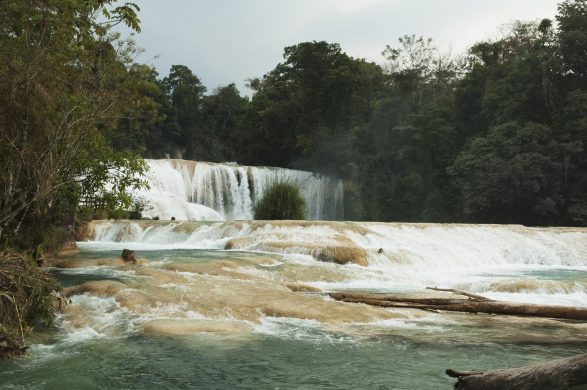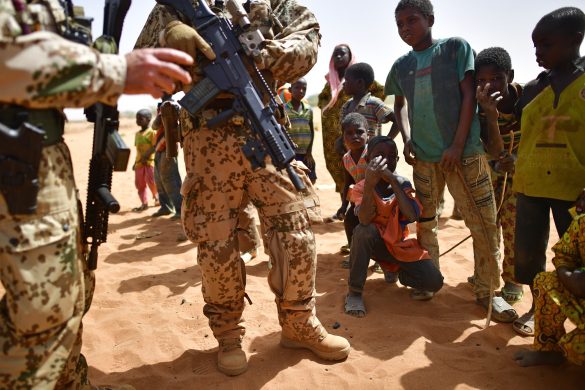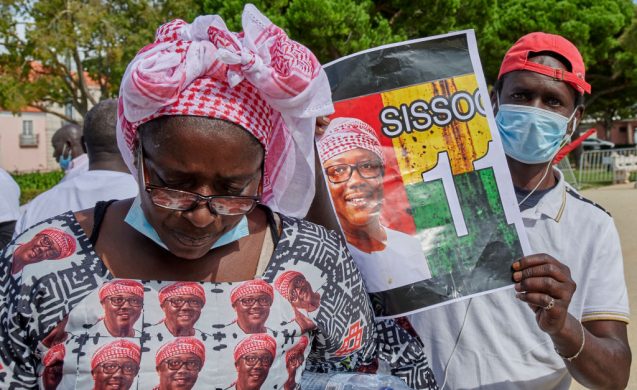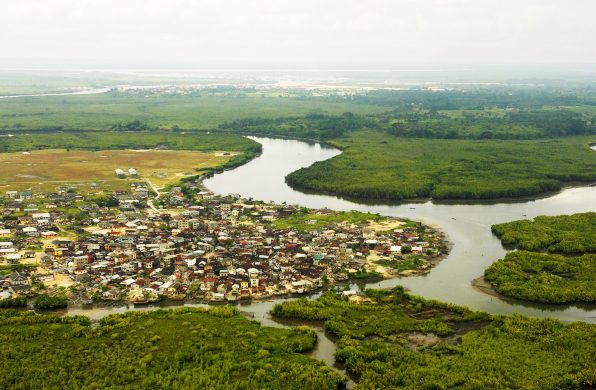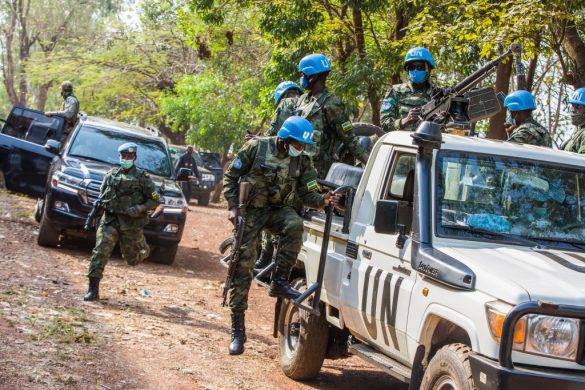GORE, Chad, 23 January, 2018 (UNHCR): Ngakouma Anatol and his wife Djikaidé Marina arrived in Chad three weeks ago with their five children after walking for 24 hours from their home in the north-western Central African Republic.
They are among thousands of people who have crossed the border since a surge in violence in CAR pushed forced displacement to the highest levels since the crisis began in 2013, according to figures issued by UNHCR, the UN Refugee Agency.
Blev hjulpet af familie de ikke kendte
Anatol told UNHCR staff in Goré a family in the nearby Chadian town of Oudoumian took them in.
“We abandoned everything and found refuge in a host family in Oudoumian,” Anatol, 35, said. “We didn’t know this family who welcomed us. UNHCR has given us food and non-food assistance. That is a great relief to us.”
UNHCR spokesperson Adrian Edwards said on Tuesday 688,700 people were displaced internally in CAR at the end of December, a 60 per cent increase compared with a year ago.
The number of CAR refugees in neighbouring countries rose to more than 542,380, a 12 per cent increase in comparison with last year, he told a press briefing at the Palais des Nations in Geneva.
“For a country whose population is estimated at around 4.6 million, these two figures combined represent an astonishing level of suffering and people in need,” Edwards added.
Since the end of December, growing violence in the north-west has led more than 17,000 Central Africans to flee to neighbouring Chad, about 10 times more than during the whole of 2017.
The flow has slowed as fighting has abated, but this was the biggest refugee influx from CAR to Chad since 2014.
UNHCR teams are distributing food provided by the World Food Programme and basic relief items, and UNHCR partners are providing medical assistance.
In total Chad hosts 77,122 refugees from CAR.
By har fået tre–doblet befolkningen på grund af flygtninge
Inside CAR, the conflict has displaced some 65,000 people to the town of Paoua, trebling its population.
Some of those recently displaced told UNHCR armed groups attacked their villages, setting fire to houses, looting food and killing anyone in their way.
“Local authorities reported to our teams that, across the north-west, some 15,000 houses have been burned and 487 people killed,” Edwards said.
“However, UNHCR and partners fear the number could be higher, since access is still not possible to places where people are hiding.”
Another CAR refugee, Hassan Issa, 32, said he reached Chad on 12 January. “Since my arrival, I sleep on the leaves under mango trees,” he said. “During my trip, I ate fruit from the forest without drinking any drop of water.”
He said he arrived without his pregnant wife, from whom he had not heard since.
If the return of the displaced is not possible in the coming months, UNHCR said it is concerned that the affected villages will miss the planting season, which may lead to food shortages later in the year.
The humanitarian community estimates that almost half of the 4.6 million Central Africans will face food insecurity in 2018. In total, some 2.5 million people will be in need of humanitarian assistance.
The situation in CAR is among 10 humanitarian crises that went under-reported last year, according to a report by the international aid agency CARE published this week.



